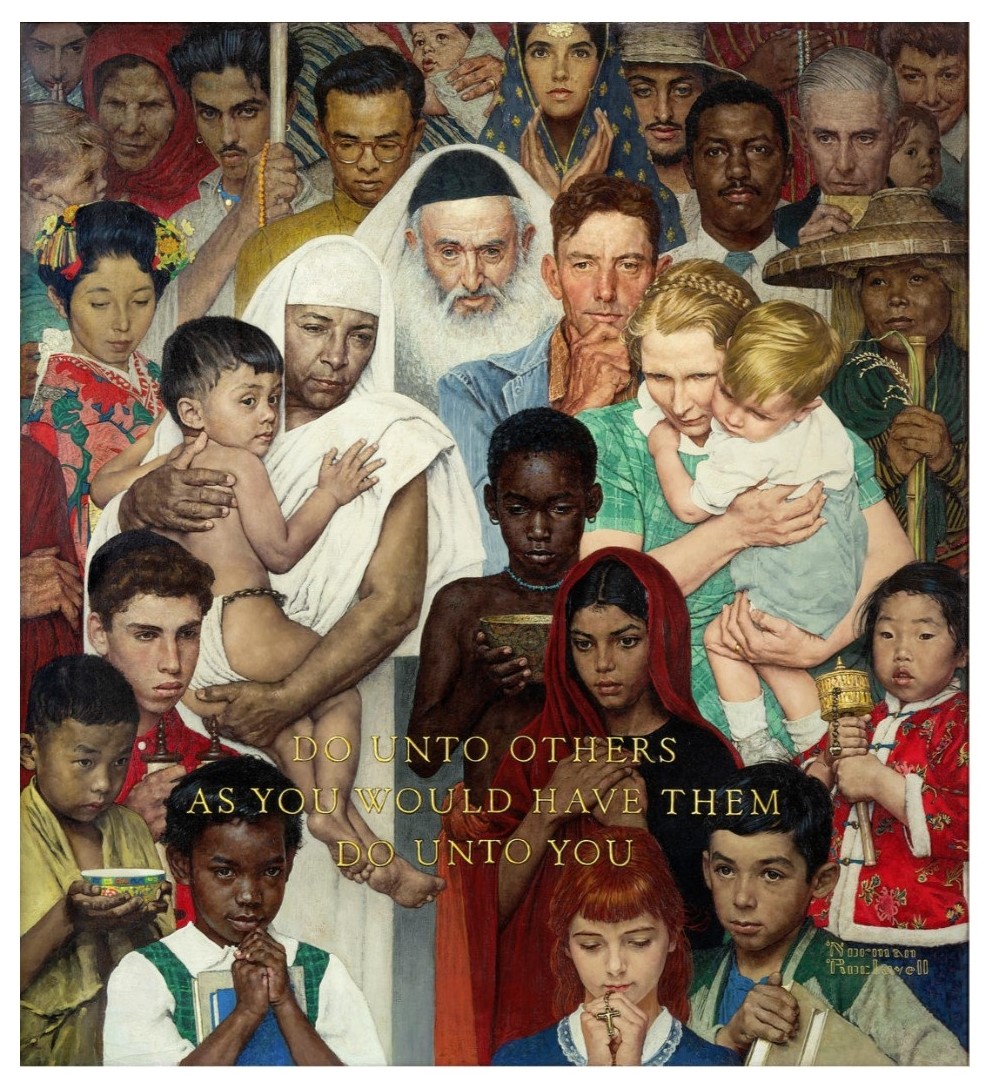Spirituality, Religion and Mental Health

The Soul has two faculties, and they should be clearly distinguished. There is the will: it’s work is to love – and so to choose, to decide, and to act. There is the intellect: it’s work is to know, to understand, and to see. To see what? To see what is there.
Integrating one’s religious faith and worship practices into experiencing and understanding the problems of living can be a valuable and effective enhancement in counseling. Bringing time-tested traditions as resources into counseling can aid in healing and growth. Learning to confidently apply such trusted principles can serve as sound guidance throughout life.
It is customary in good counseling to identify, understand, and approach each person as a ‘whole person’ in terms of body, mind and spirit. Therefore, it is incumbent for competent counselors to understand clients’ religious beliefs and worship practices, and offer to incorporate them into counseling where and when appropriate.
In today’s fast-paced, digitized, materialized and politicized world, counseling focuses on many aspects of a person’s life, and, may unintentionally omit vital components of living, impacting health of the individuals, families and communities. Closely held personal religious beliefs and worship practices are a prime example of an essential personal trait often overlooked, actively ignored, or downplayed in mainstream counseling practices.
When a counselor begins working with you, conducting a complete initial assessment and history is essential in building a foundational understanding of your psychological problems and risks, and your coping strengths and competencies can include religious and spiritual beliefs. One powerful coping strength we may cultivate is our faith.
Competent counselors do not impose their personal values, politics, world-views or religious beliefs while attending, guiding and aiding clients toward their goals, and helping to explore clients’ beliefs to assist each person flourish in living out their best and most fulfilling life.
A simple, basic and widely accepted model for counseling is the “strengths-based perspective.” According to Psychology Today, “Strength-based therapy is a type of positive psychotherapy and counseling that focuses on your internal strengths and resourcefulness and less on weaknesses, failures and shortcomings.”
Respecting Religious Beliefs in Counseling

Powerful influences alive in contemporary society now encourage identity formation centered around themes of victimhood or oppression, thus positioning our perceptions away from conventional personal and interpersonal strengths, discounting a vital tool for building strong and healthy skills for coping with adversity in life. Rather than affirming preconceived, distorted, self-limiting beliefs of relative helplessness, disease, mental illness or woundedness, common sense reality, objective wisdom and truth found in religious beliefs are food for the flourishing soul.
Many counselors are reluctant to bring religion into their sessions for a few reasons:
- They tend to view life through a more secular perspective, and are less religious themselves.
- They look at their work as more scientific, concrete and technical which conflicts with religious beliefs.
- They feel uncomfortable talking about religion. They fear imposing their beliefs onto a client, or fear not knowing enough about the faith of the client to include it in the therapeutic process.
- Many early leaders in the mental health field lacked respect for religion, which still has an impact today on attitudes towards bringing religion into mental health.
- Including religion is not being widely taught in graduate schools so it is often an afterthought overlooked altogether.
- However, despite these barriers, religion is still widely used to help people with mental health distress. Belief in God is one of the major protective factors when assessing a person for risks of suicide.
- Religious communities and churches can provide social supports greatly increasing mental health outcomes.
- The 12-step programs use God or a higher power, and religion is a common component of addiction recovery.
- Religious and spiritual beliefs adjust internalized conditions to balance with the external environments.
- Spiritual development can serve to suppress internalized drives interfere with developing resilience.
- Religious and spiritual beliefs can bolster resilience in individuals, families and communities.
Why Bring Religious Beliefs to Counseling?

When wishing integrate belief in God, spirituality, or discuss faith in counseling, here are some ideas:
- Explore your relationship with God. Perhaps you are struggling with your faith or have lost faith in God recently. Perhaps there are feelings of anger, conflict, or abandonment by God due to some hardship or adversity. These emotions can be explored and processed and lead to healing with counseling.
- Explore emotions and issues from God’s perspective. What does God think? This can be a good way to gain insight.
- Regular prayers can be healing. They can be shared in session or outside of session.
- Using God as a guidance. It can be helpful for people to dialogue with God, ask questions to practice discernment and wisdom, helping gain answers or insight. God may be primary as a source of support for someone who feels alone or struggles to speak to other people in their lives, and relating with God may be more naturally healing than talking to humans.
- Processing long-term unresolved issues in one’s relationship with God or religion. It may benefit to explore these issues with a counselor and resolve internal conflicts. For example, a person may feel their religion is too rigid or brings a strong sense of guilt. These are all important topics to discuss if they are related to the issues the client and counselor are working on.
- Help people find a higher purpose or guide them in the direction they need to go in. Religion can often help guide people on the right path. Religion can help people rise above the petty struggles of their day and feel gratitude and joy.
- Use God for emotional support. Many people are not able to get their emotional needs met (or not be able to receive) from humans in their lives when they are in a vulnerable time. However, they may be able to receive love and forgiveness from God, which can help them on a path to healthier choices.
- God can help people forgive themselves and others, which is often the most difficult. These are not easy, and those with stronger faith can usually let go much easier than those with no faith.
- God brings hope. Having faith in a higher power can help people get through the most challenging times.
- Connecting with others about God. Being part of a church or religious community gives people a sense of belonging, which is very important in human mental health. Those who do not feel they belong anywhere often become victims of predators and/or more likely to make poor choices.